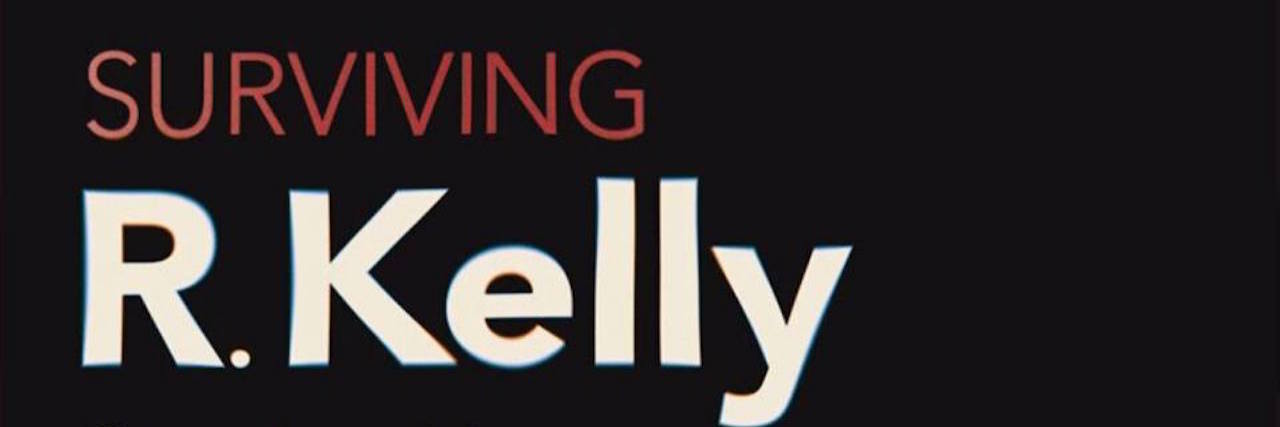3 Takeaways From the New R. Kelly Documentary We Shouldn't Ignore
Sometimes the news isn’t as straightforward as it’s made to seem. Juliette Virzi, The Mighty’s mental health editor, explains what to keep in mind if you see this topic or similar stories in your newsfeed. This is The Mighty Takeaway.
Rumors of R. Kelly’s sexual misconduct and abusive behavior have circulated for years. Despite this, he’s been celebrated as one of the greatest R&B artists of all time.
Lifetime’s new six-part docuseries, “Surviving R. Kelly,” (the first part of which aired January 3) addresses allegations that have long been swept under the rug. The documentary elevates the voices of survivors and folks from his inner circle, bringing new allegations of abuse, predatory behavior and pedophilia to light.
The network believes the documentary reflects their “commitment to provide a platform to give women a voice where they have previously been unheard to bring awareness to the abuses and harassment of women.”
Kelly continues to deny the allegations against him and threatened to sue Lifetime.
“These survivors deserved to be lifted up and heard,” John Legend, who appeared in the documentary posted, on Twitter. “I hope it gets them closer to some kind of justice.”
Here are three things we can’t ignore following the conversations about “Surviving R. Kelly”:
1. We can’t continue to disregard Black female survivors of abuse.
Black women experience disproportionate rates of violence. According to a study done by the Institute for Women’s Policy Research, more than four in 10 Black women will experience physical violence from an intimate partner in their lives, and more than 20 percent of Black women will be victims of rape in their lifetimes.
Since the documentary aired, people have speculated that these allegations were largely ignored because the alleged crimes were committed against Black women.
Illustrating this point was Chance the Rapper’s controversial comment in the documentary, “Maybe I didn’t care because I didn’t value the accusers’ stories… because they were black women.”
The rapper has since explained the quote was taken out of context and released the full segment of his interview in which he says:
We’re programmed to be hyper-sensitive to black male oppression. It’s just prevalent in all media… But black women are exponentially a higher oppressed and violated group of people just in comparison to the whole world. Maybe I didn’t care because I didn’t value the accusers’ stories… because they were black women.
Chance the Rapper followed up his tweet with an apology to the survivors who experienced abuse at the hands of R. Kelly:
The truth is any of us who ever ignored the R. Kelly stories, or ever believed he was being setup/attacked by the system (as black men often are) were doing so at the detriment of black women and girls. I apologize to all of his survivors for working with him and for taking this long to speak out.
2. Streaming or Purchasing R. Kelly’s music now is potentially damaging to survivors.
A representative from Spotify told The Blast that R. Kelly’s music saw a 16 percent jump in streams since the documentary aired.
Jada Pinkett Smith voiced her outrage on Instagram in a video post. In the caption she wrote:
How is it that R Kelly’s music sales have spiked (substantially) since the release of the docuseries Surviving R Kelly? I need some help in understanding. What am I missing???
She elaborated, “I really don’t want to believe that it’s because black girls don’t matter enough. Or is that the reason?”
Though we can’t say definitively why folks have been streaming his music at higher rates, psychiatrist Gail Saltz, MD, told Yahoo it probably has to do with morbid fascination.
People are fascinated with the horrible story of R. Kelly, powerful person with seemingly everything doing terrible sexual things and victimizing those without power, a sadistic and masochistic fascination and voyeurism that draws people to listen to his music to be involved further in observing the story… Some people may also be trying to ‘play detective to see if there are clues to his alleged abuse or hidden messages about his character or crimes.
Regardless of why it’s happening, the reality is higher streaming of his music could be triggering and disrespectful to survivors.
3. It shouldn’t take a six-part docuseries for us to believe survivors.
According to a TMZ report, R. Kelly is now being investigated based on the allegations in “Surviving R. Kelly.” This is great news and speaks to the importance of the media bringing issues to light, but it still brings a significant question to the table.
Why did it take a six-part docuseries for us to believe survivors?
Documentaries are powerful, and it’s important that this documentary was made. But it’s unfortunate that such extreme measures had to be taken for allegations against R. Kelly to be taken seriously. We need to take all sexual assault allegations seriously. Whether an allegation comes from a Black woman, gay man, a person with an intellectual disability or anyone else, each survivor deserves to have their story heard and be supported in moving through the lasting impact of trauma.
If news like this is triggering for you, please know you aren’t alone. If you are struggling with past sexual trauma and need to talk to someone right now, call the National Sexual Assault Telephone Hotline at 800.656.HOPE (4673) to be connected with a trained staff member from a sexual assault service provider in your area. To learn more about sexual assault prevention and access resources, visit Rainn.org.
Header image via Lifetime Facebook page

